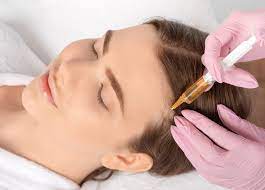Clinique Anti Aging chemical peel can treat a variety of skin conditions. Let us examine a few of the most prevalent conditions that chemical peels could be able to address.
- Acne
A typical inflammatory skin condition is acne. Chemical peels may be helpful, as well as topical treatments or oral medications frequently used to treat it.
This method can:
- dissect clogged pores
- cut back on oil output
- destroy bacteria
- lessen inflammatory
- increase in topical therapy absorption
- To treat acne, mild and moderate chemical peels are typically employed.
- Acne scarring
The skin produces new collagen fibers as acne heals to treat lesions that the inflamed skin has caused.
Atrophic scars, which cause depression in your skin, and scar formation, which is rough and elevated, can be caused by synthesizing new collagen fibers. Exfoliation can help by removing extra collagen from the top layer of the skin. For acne scars, moderate chemical peels are often advised.
- Rosacea
A chronic inflammatory disorder called rosacea produces skin redness, swelling, and pimples. Acne rosacea is the name given if it also results in outbreaks that resemble acne.
A chemical peel may occasionally be able to help with these problems. Typically, mild to moderate rosacea qualifies for its recommendation.
- Skin aging
Chemical peels may lessen aging symptoms like:
- wrinkles
- tiny traces
- age stains
- variable skin tone
- roughness
- dryness
- Hepatic spots
- Collagen and elastin are produced when the skin regenerates following a chemical peel. By strengthening and making your skin supple, you can lessen the visibility of wrinkles.
The skin that regenerates is also softer, which lessens dryness and roughness.
However, it is not advised to use chemical peels to get rid of deep wrinkles. It also won’t make loose skin tighter.
- Hyperpigmentation:
Chemical peels can reduce additional types of hyperpigmentation in addition to age spots and acne scars, including:
- variable skin tone
- melasma
- freckles
- incisional scars
- scars from injuries
- fading brought on by solar damage
- Dullness
Chemical peels could be helpful if your skin is dull.
The procedure enables the resurfacing of fresh skin, which could make your skin appear more radiant and healthy.
- Malignant growths
Rough skin patches called actinic keratoses are brought on by years of solar radiation. They are called precancerous growths because skin cancer could develop from them.
These growths can be removed with a deep chemical peel, lowering your chance of developing skin cancer.
An aesthetic procedure that eliminates the skin’s uppermost layer is a chemical peel. This can reduce scarring, hyperpigmentation, dullness, wrinkles, and wrinkle depth. Rosacea and acne-related skin conditions may also be helped by it.
Deep creases and scarring, however, cannot be treated with a chemical peel. Additionally, it won’t tighten saggy skin or undo UV damage. Consult your healthcare provider to determine if a chemical peel is appropriate for you.





